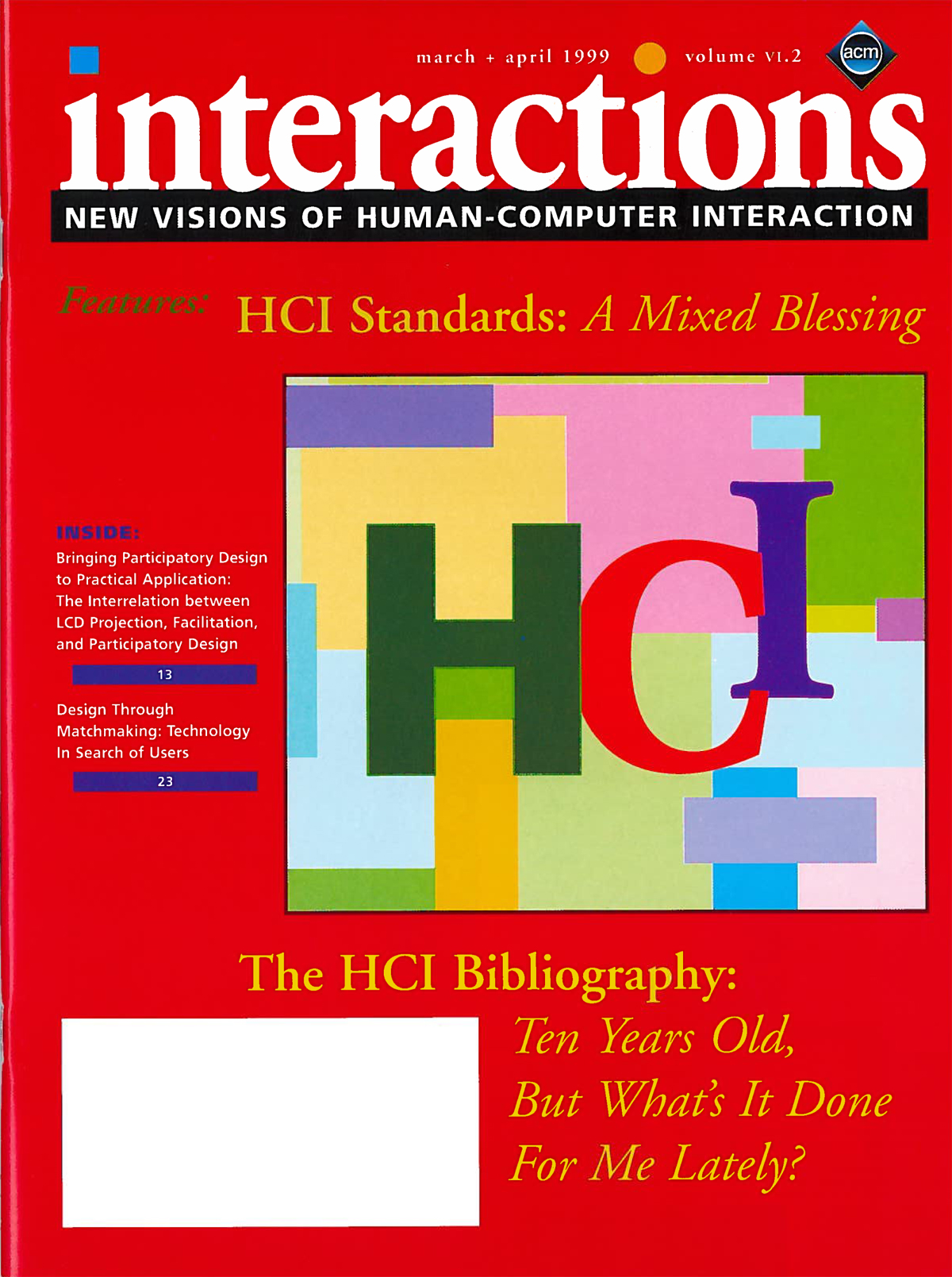Authors:
Sara Bly, Elizabeth Churchill
Every designer knows the value of studying users to determine requirements for technology development. But how can you incorporate user domain knowledge "after the fact" into early design when a technology prototype already exists? We suggest a four-step matchmaking process to move from a design centered on technology to one centered on users. Our matchmaking process involves four steps: Describing the capabilities of the technology, Mapping those capabilities to associated work activities, Identifying work domains and specific example sites on the basis of the work activities, and Characterizing the work of the example sites to verify whether they match…
You must be a member of SIGCHI, a subscriber to ACM's Digital Library, or an interactions subscriber to read the full text of this article.
GET ACCESS
Join ACM SIGCHIIn addition to all of the professional benefits of being a SIGCHI member, members get full access to interactions online content and receive the print version of the magazine bimonthly.
Subscribe to the ACM Digital Library
Get access to all interactions content online and the entire archive of ACM publications dating back to 1954. (Please check with your institution to see if it already has a subscription.)
Subscribe to interactions
Get full access to interactions online content and receive the print version of the magazine bimonthly.







Post Comment
No Comments Found